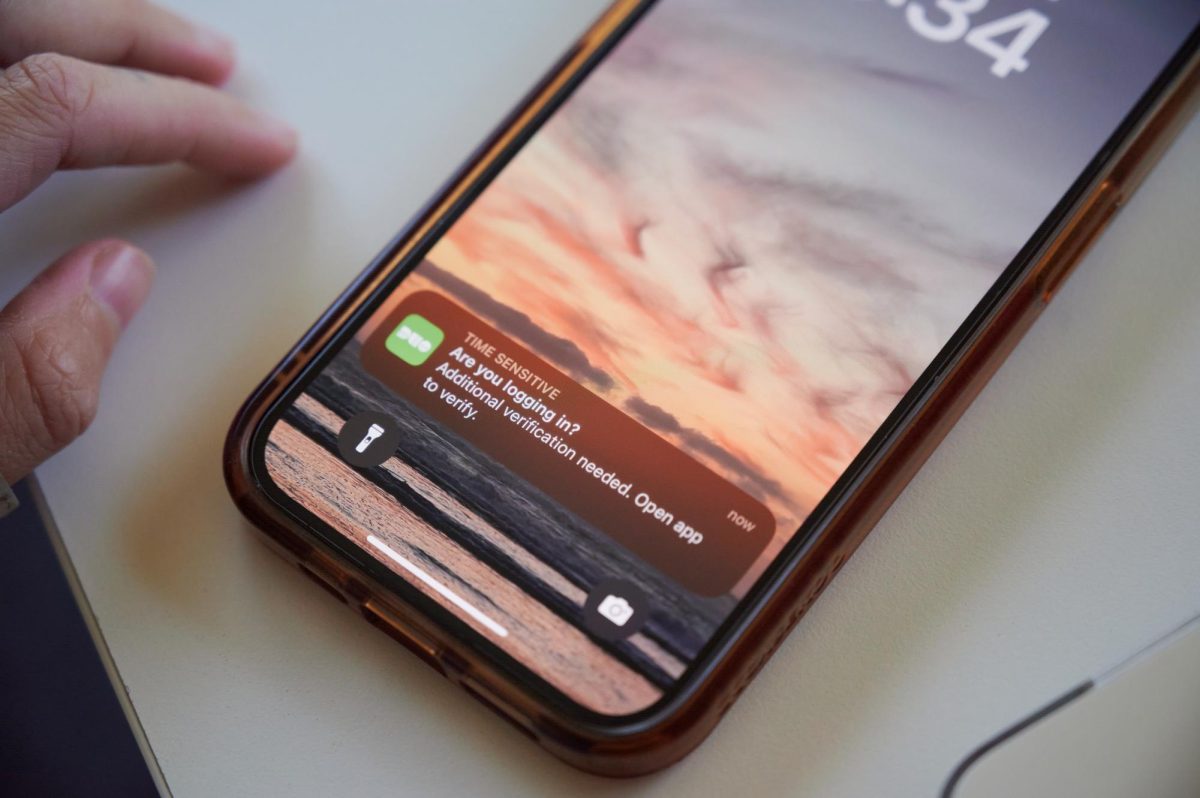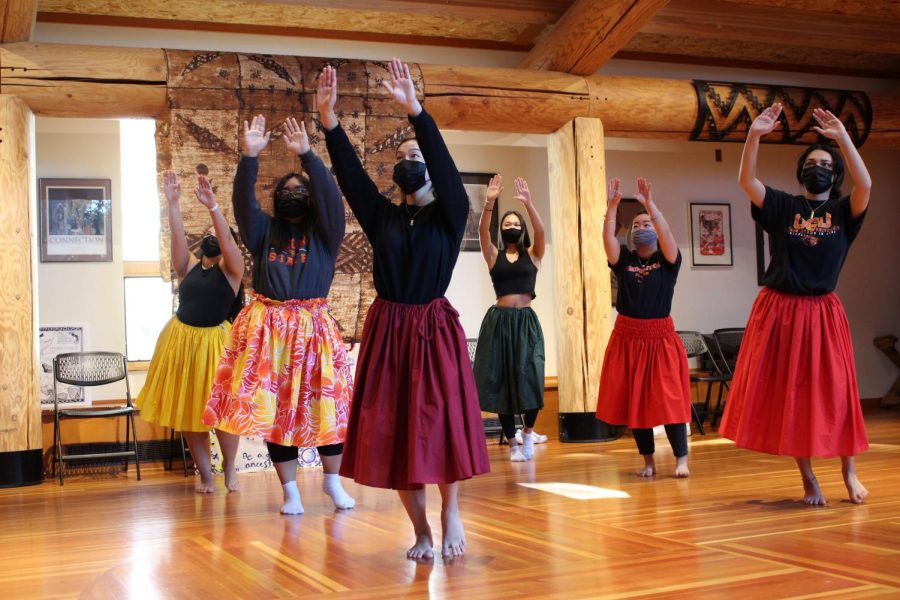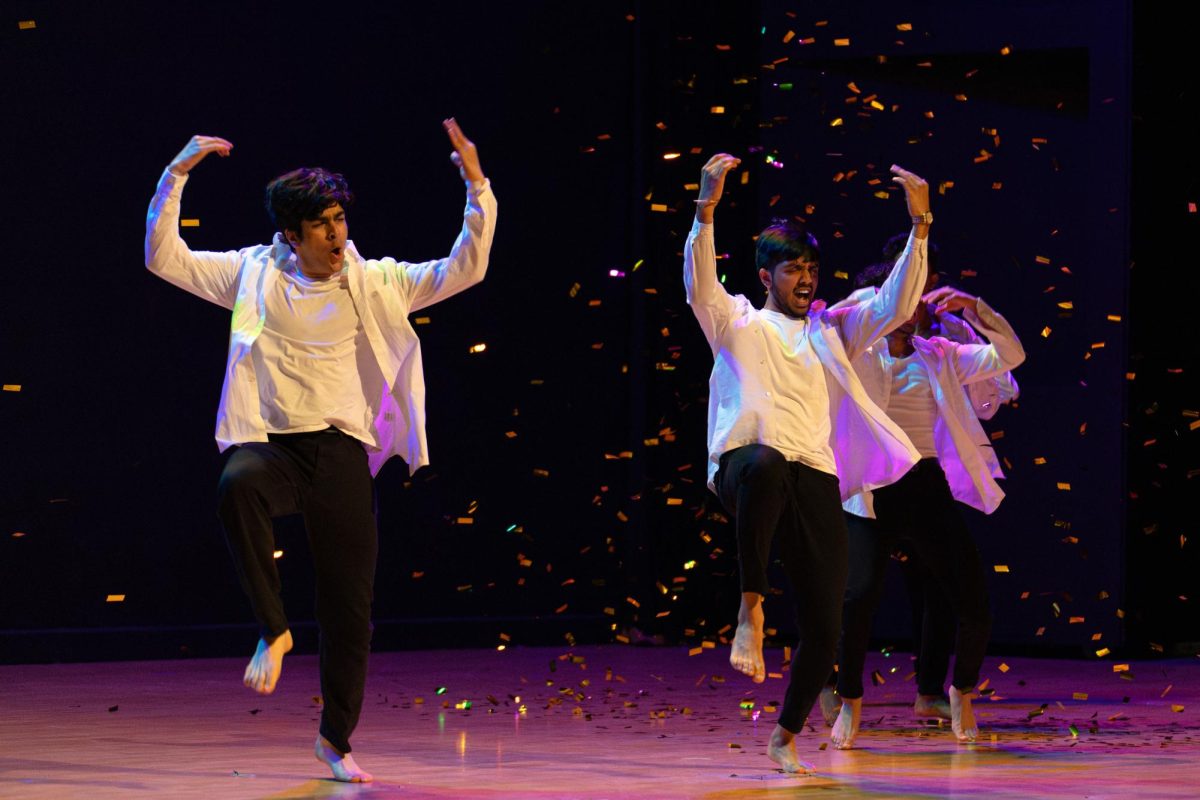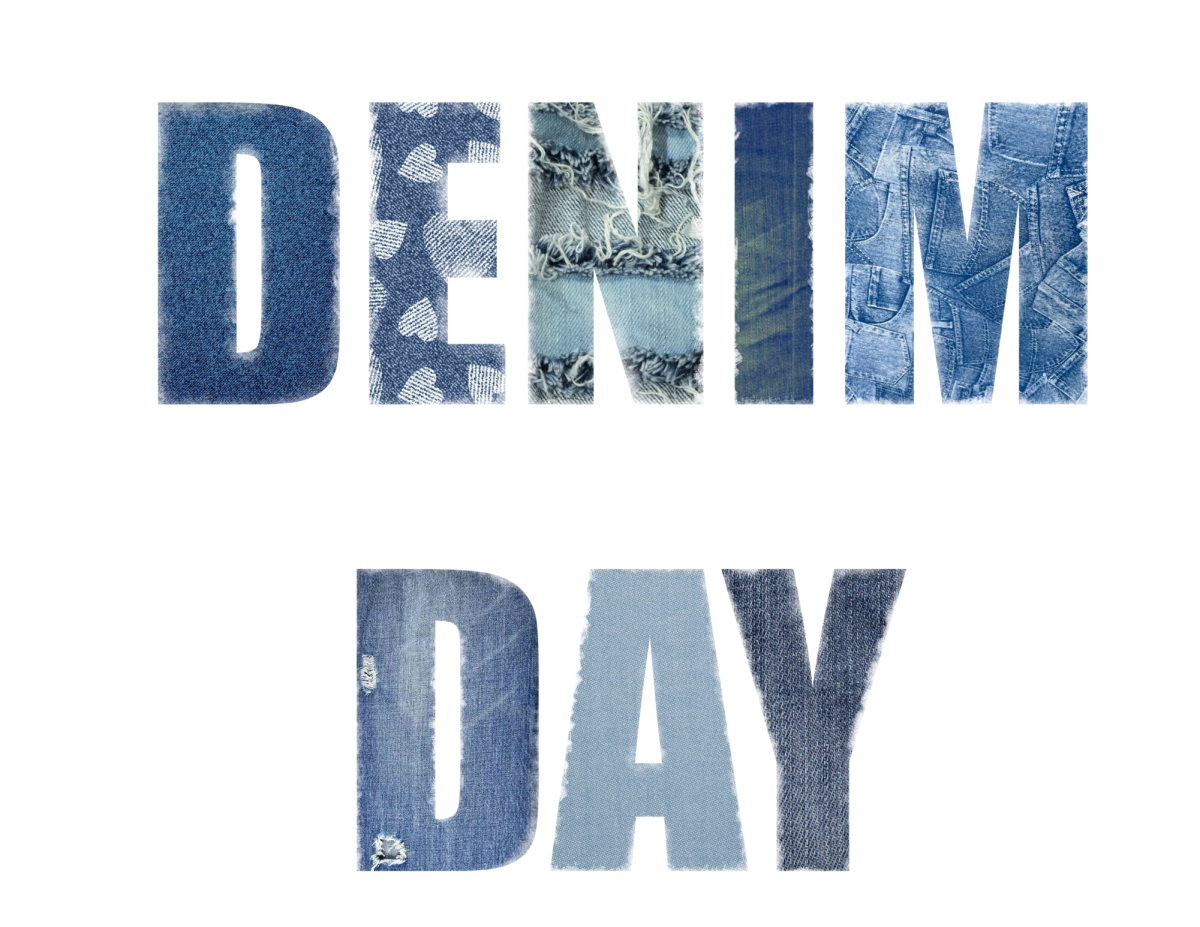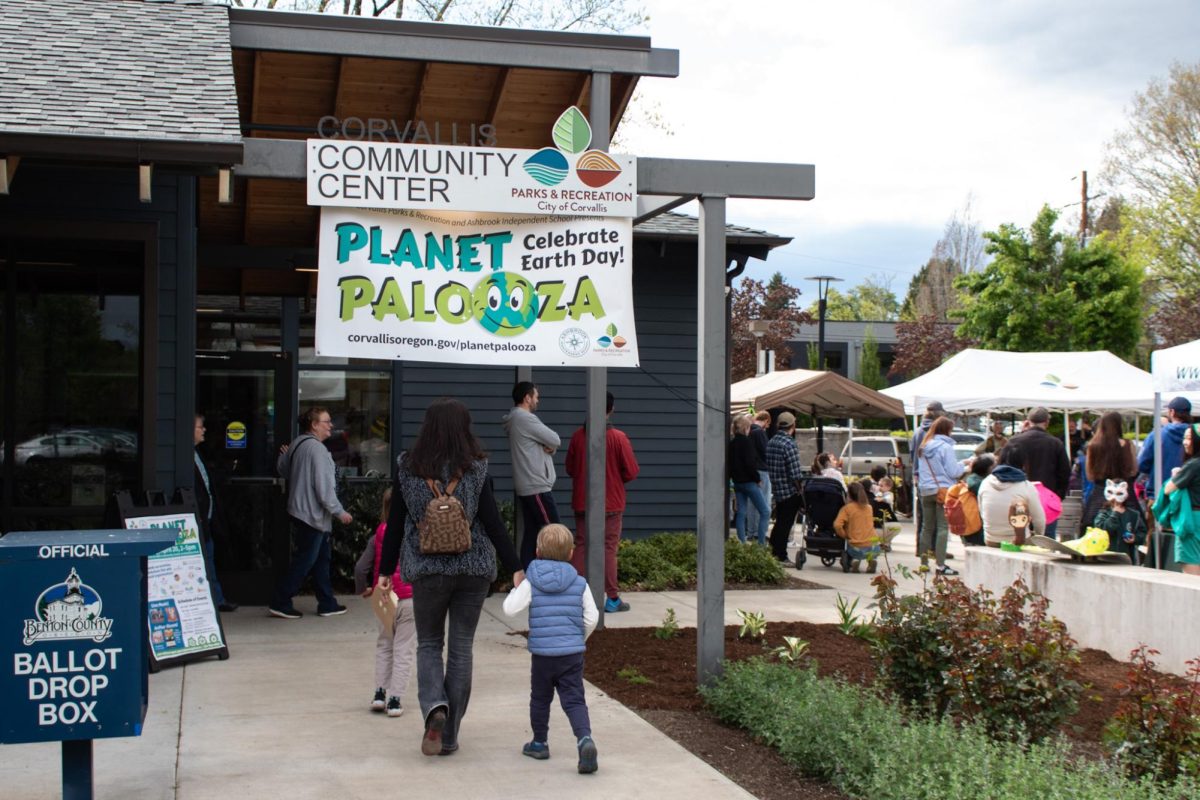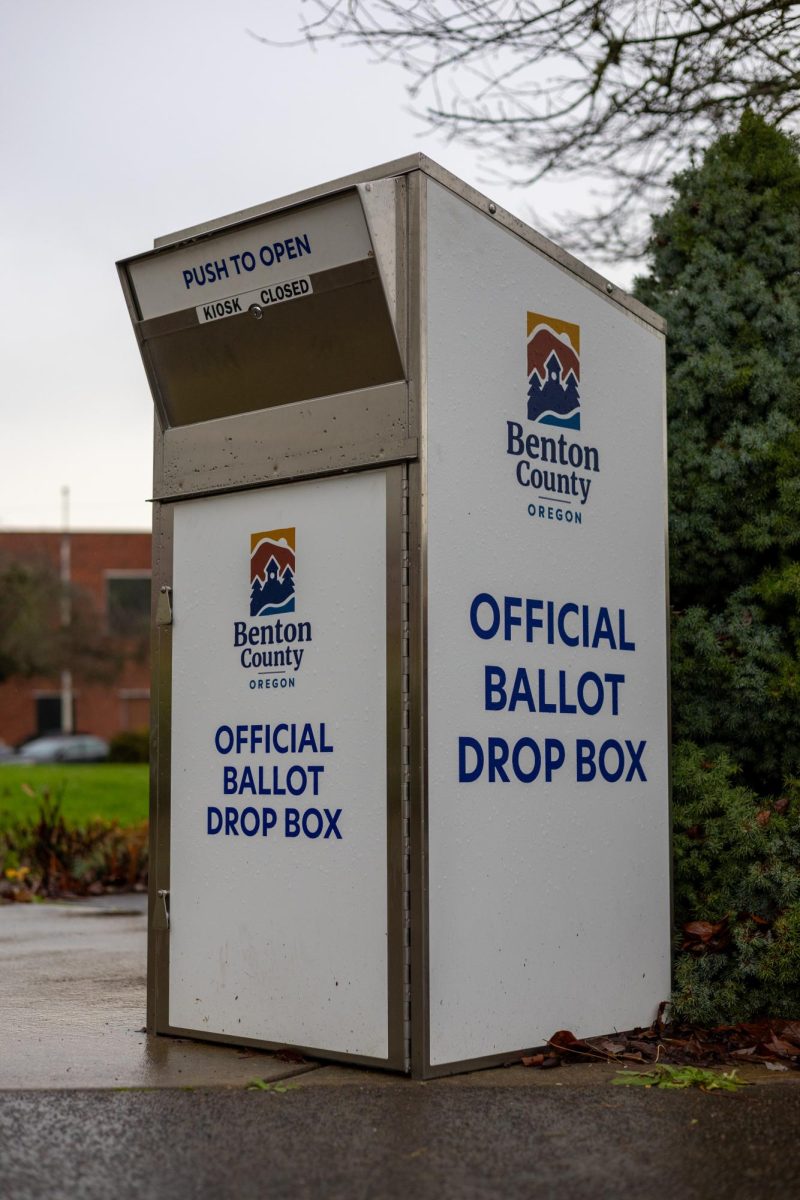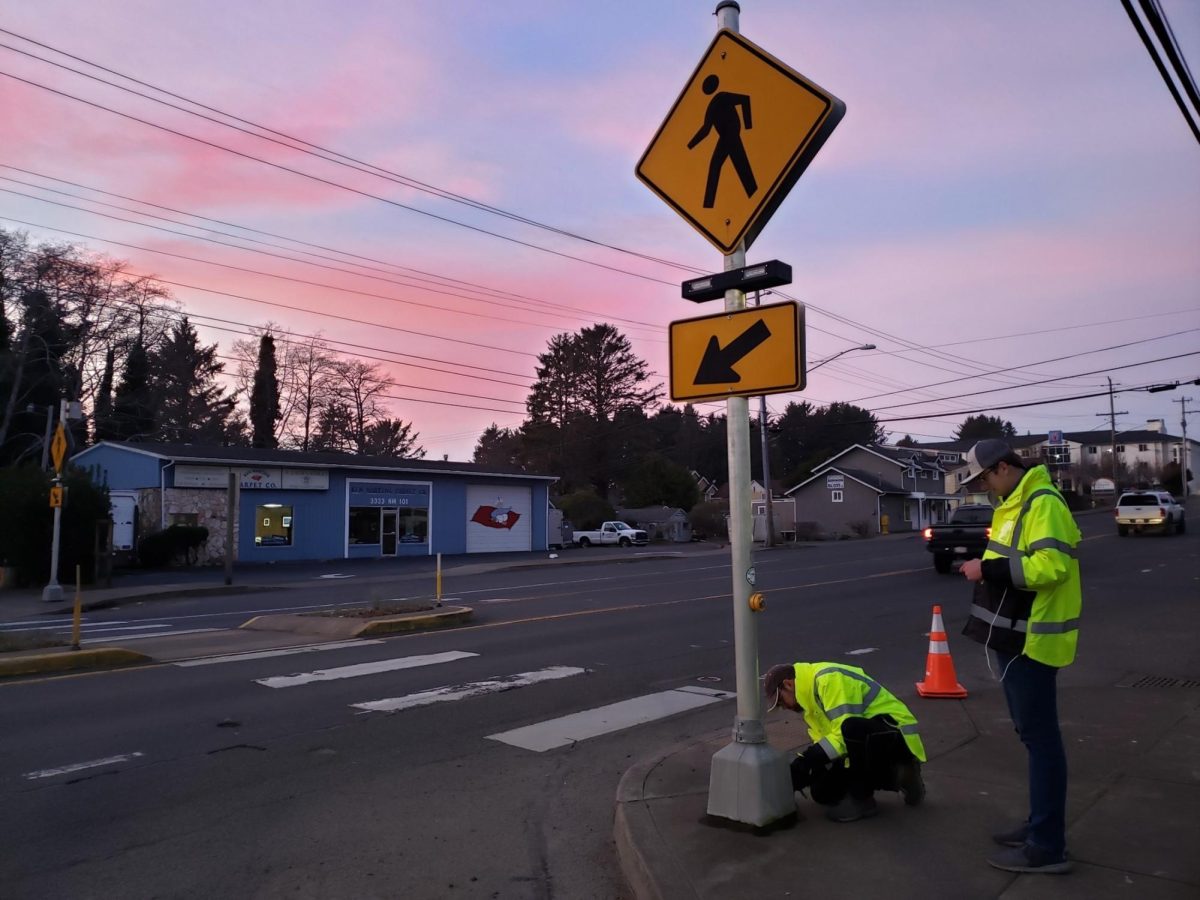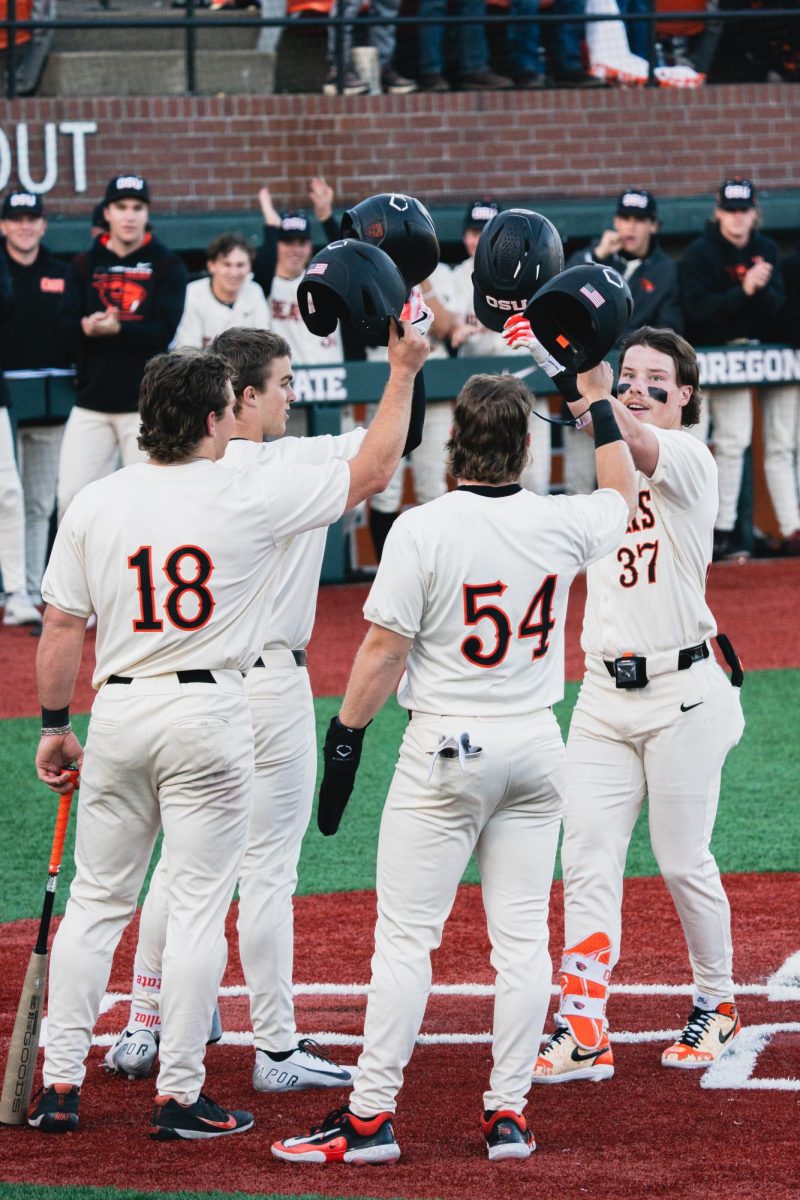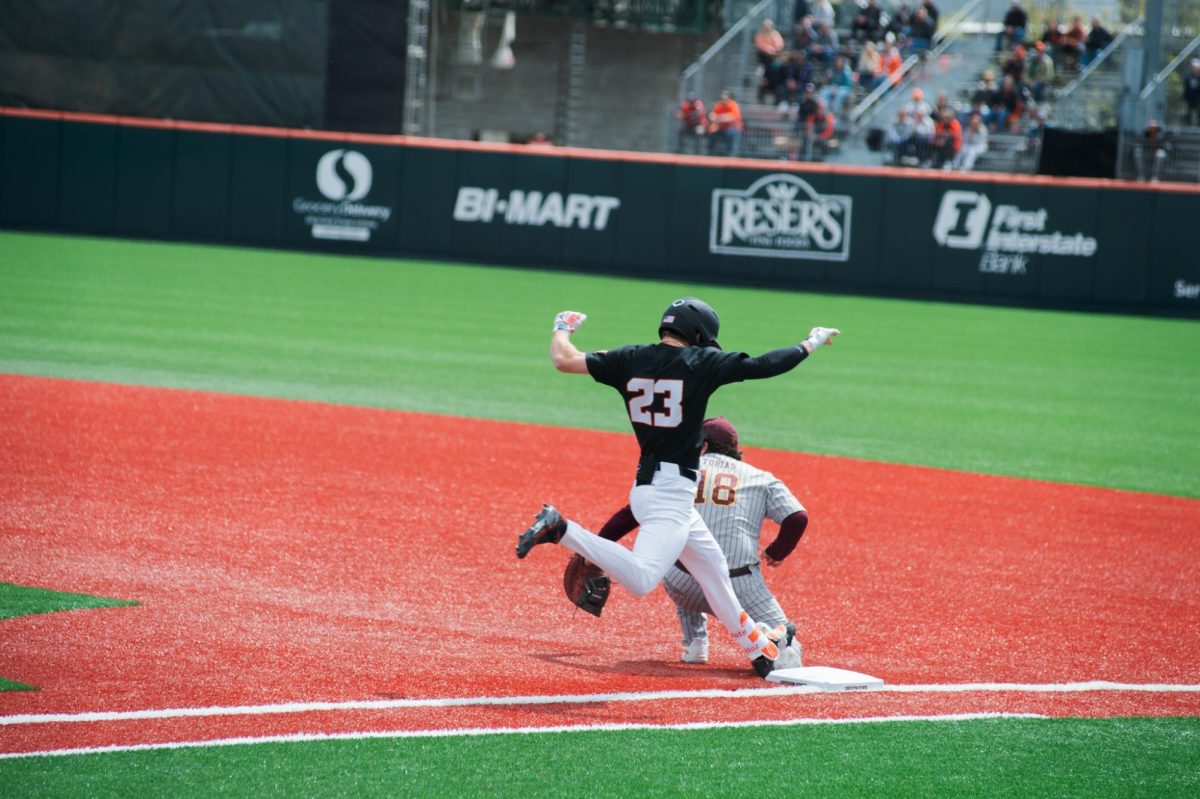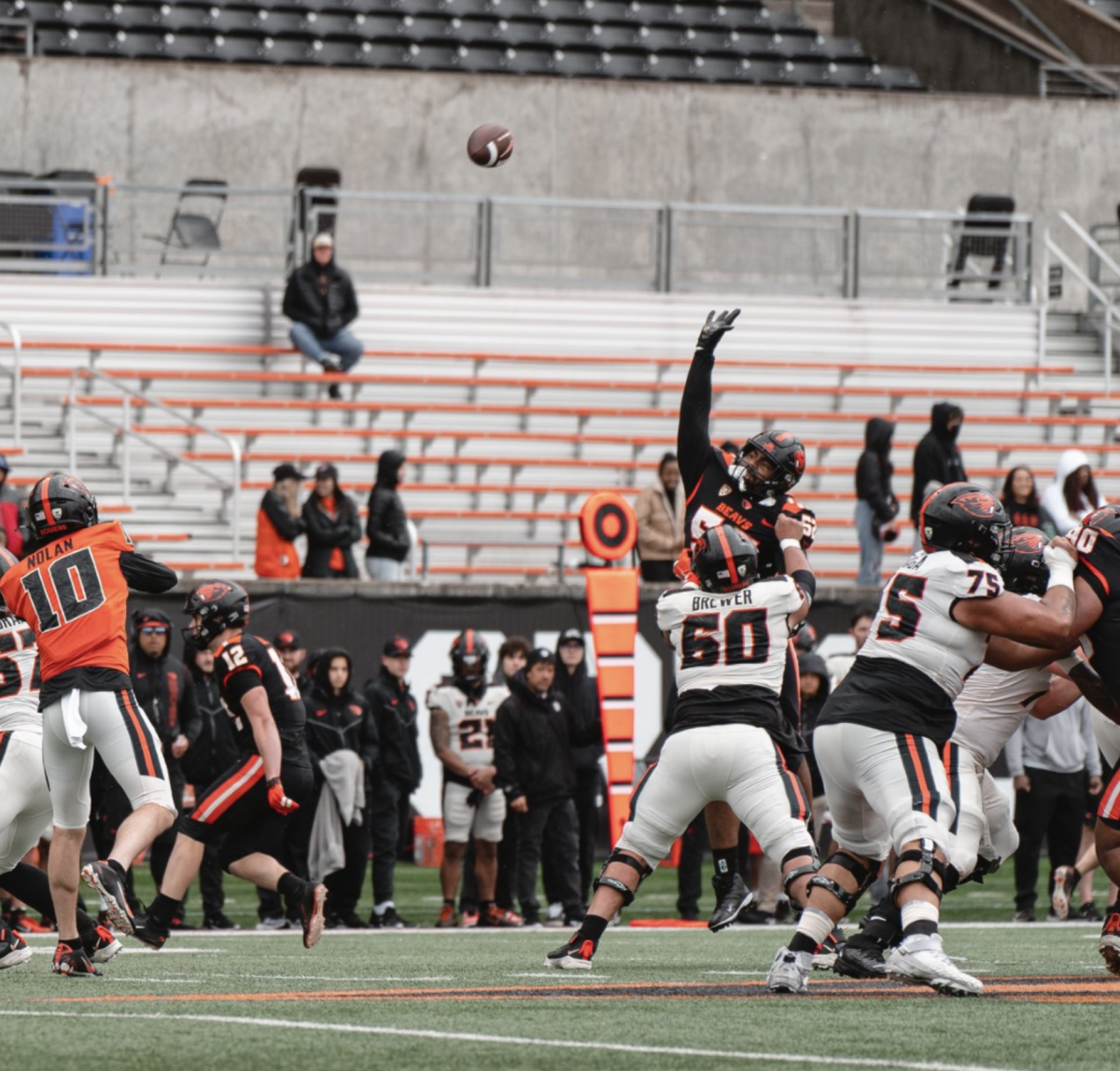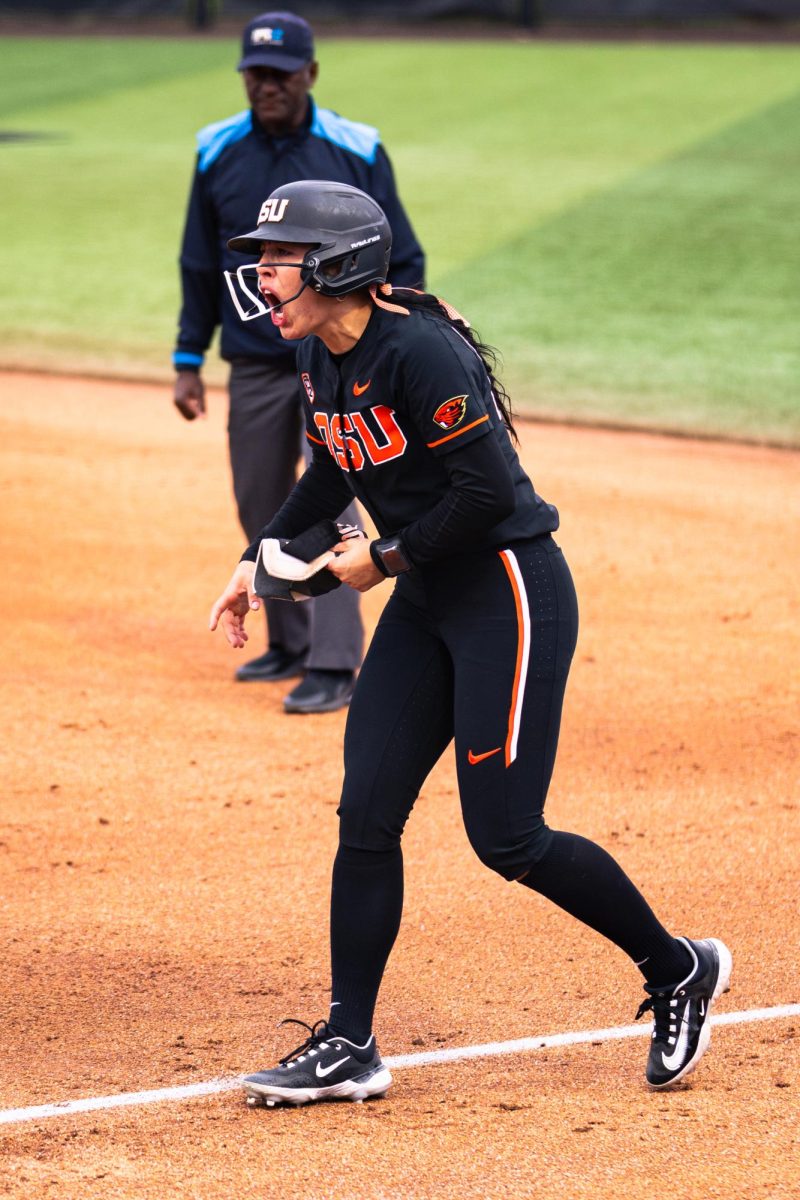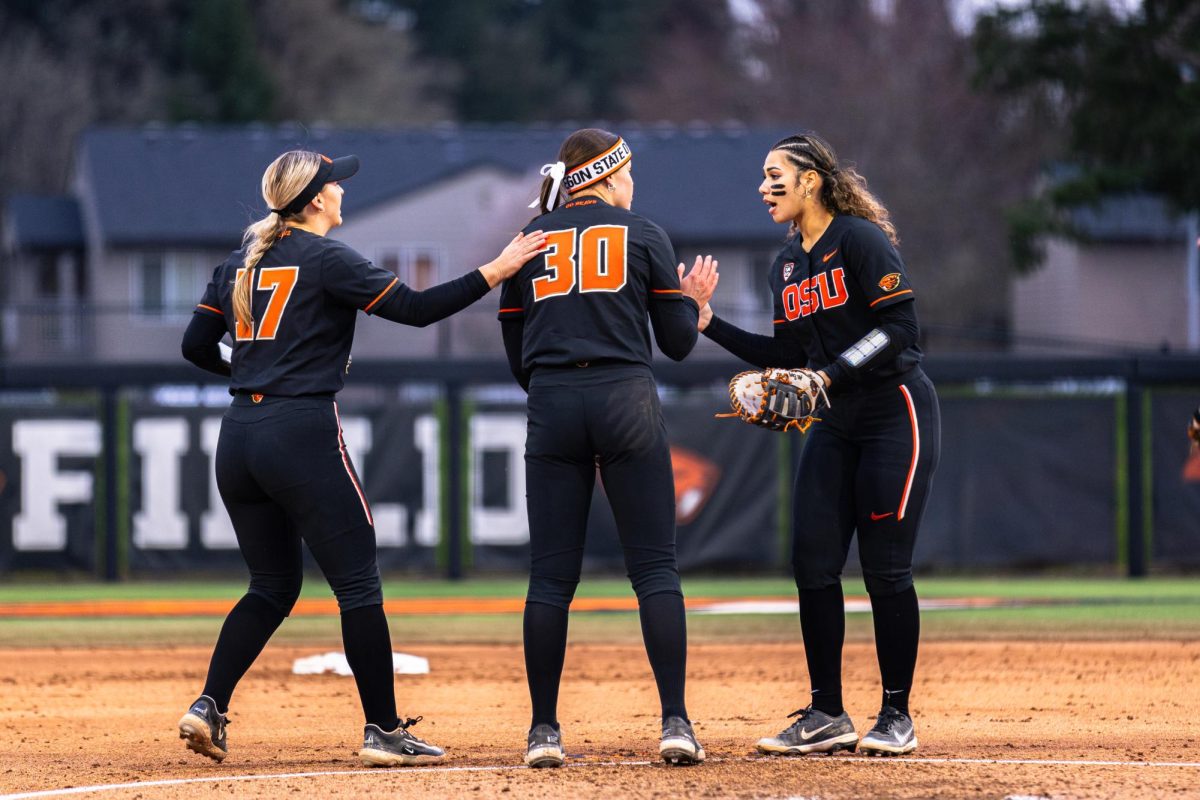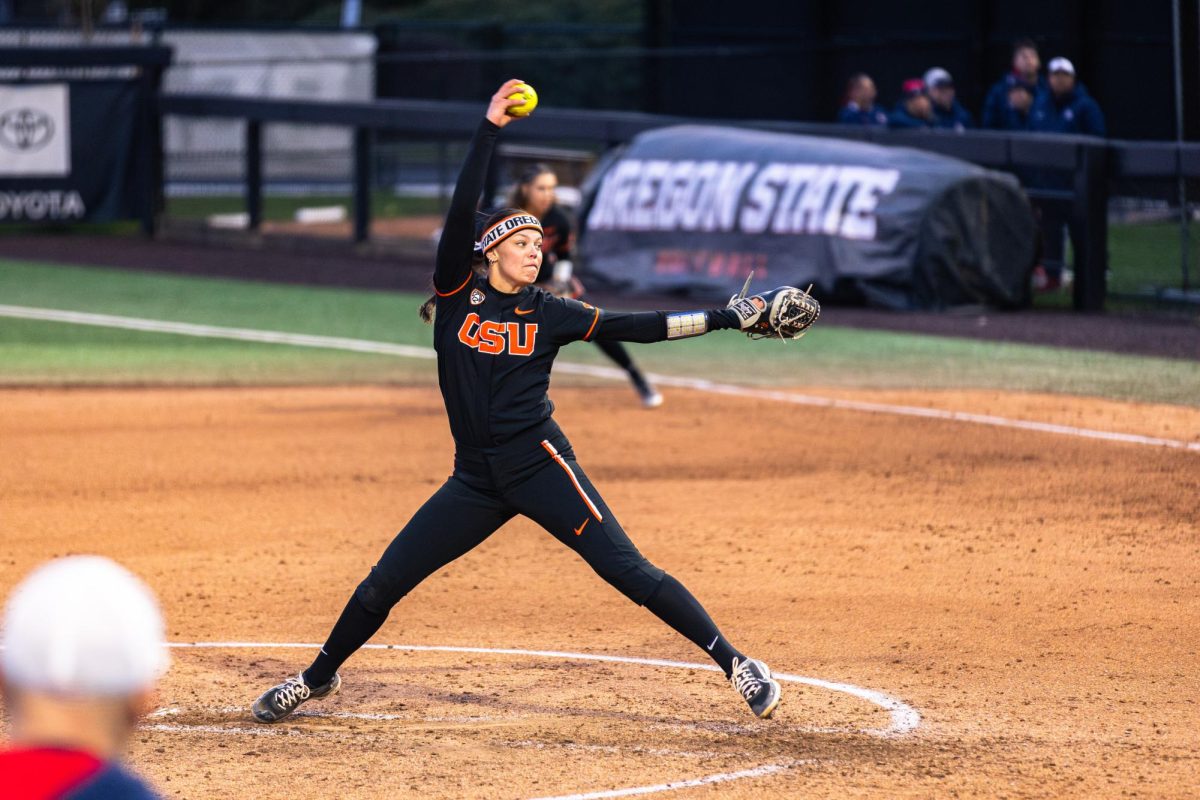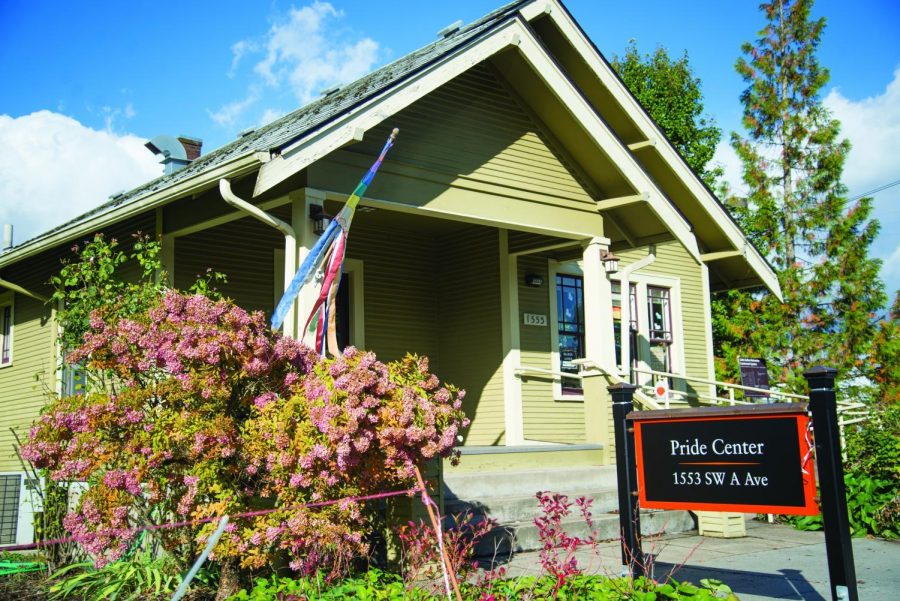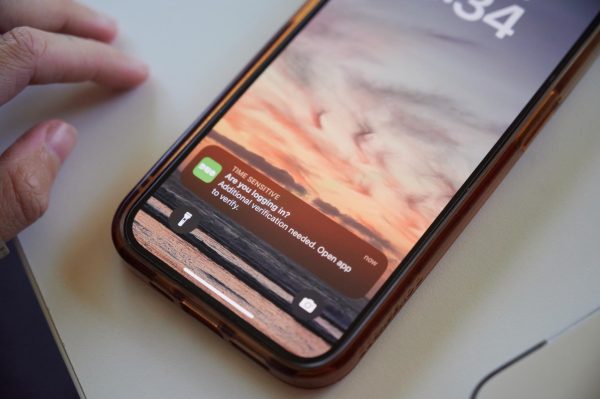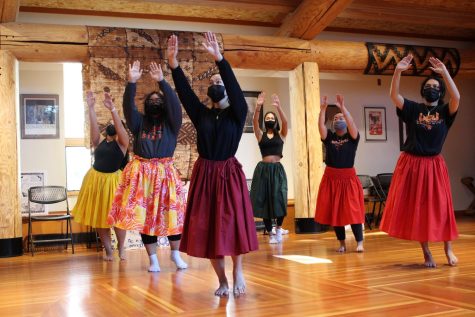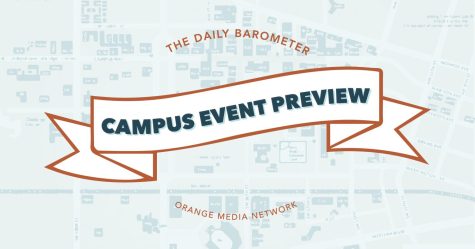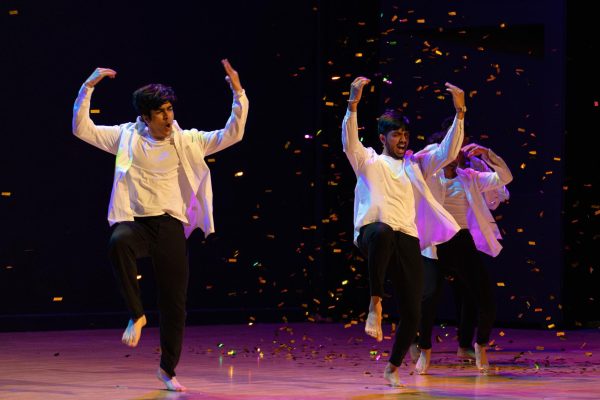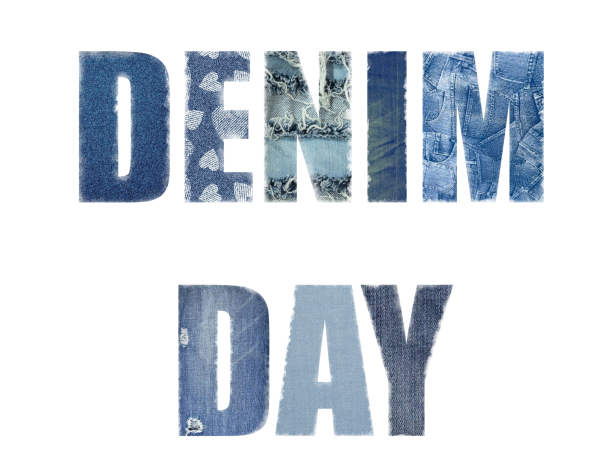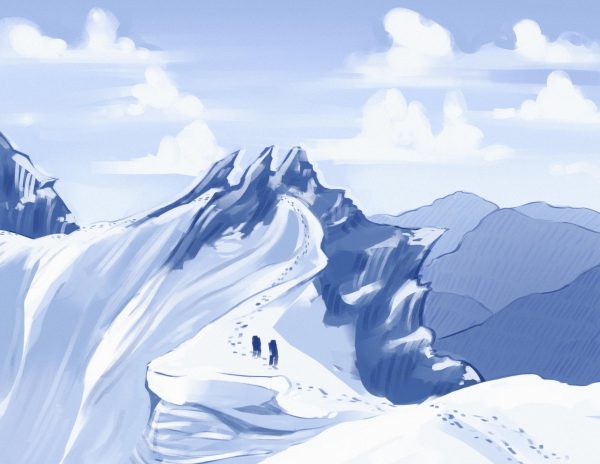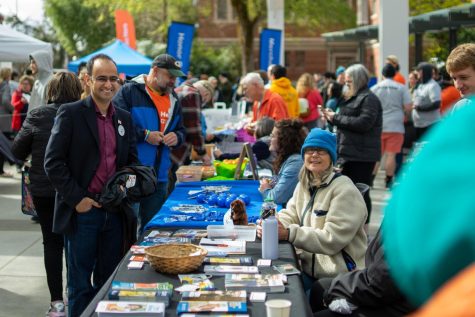OSU celebrates Queer History Month
October 16, 2017
Campus resources such as cultural resource centers, OSU archives, student-ran organizations work to educate community.
With October being Queer History month, Oregon State University is utilizing its resources, such as the cultural resource centers, OSU archives and student-run organizations to educate the community about queer history in the United States.
Watching a documentary on the Stonewall Riots of 1969, in which violent demonstrations of the gay community were made against a police raid, one may be led to believe these demonstrations were lead by gay, white cis males. The truth of these riots, which changed the culture of queer and trans history forever, is that they were led by trans women of color, according to Dharma Mirza, activist and drag performer.
“I think it’s really important and I see this meme a lot and it’s that gay liberation did not come from pride marches, it didn’t come from marriage equality, it came from transwomen of color throwing bricks at police officers,” Mirza said. “Which is really important; it’s violent, it’s civilly dissonant and it’s what needed to happen in order to push back”.
It is important to become engaged with the events during Queer History Month because many people believe they have been extremely progressive with LGBTQ and human rights, when in reality it’s been an uphill battle since the beginning, according to Mirza.
According to Cynthia Konrad, director of the Pride Center, Queer History month has been celebrated since the mid-1990s and was built around National Coming Out Day, which occurs on Oct. 11.
“Queer History Month is a time when queer, trans and intersex people can learn about our history, build community and do the important work of imagining a more just future. That’s why the theme this year is Queer & Trans Futures,” Konrad said in an email. “It also gives us the opportunity to raise awareness about issues that are important to us and strengthen connections with our accomplices—people who don’t identify as LGBTQ+, but actively support us.”
The events this year at OSU will be hosted by and in collaboration with numerous groups including, LGBTQ+ Multicultural Support Network, the Ettihad Cultural Center, the Women’s Center, the OSU Queer Archives, the Rainbow Continuum student organization and the Pride Center, according to Konrad.
“To me, queer history is the history of the ways people think, create, live, love and identify that fall outside binary notions of gender and heteronormative relationships,” Konrad said in an email.
“Recognizing queer history means recognizing all histories of oppression, resistance and resilience.”
According to Mirza, queer history at OSU is necessary in order to develop deep conversations about larger issues happening in the queer and trans community.
“I think that being a part of a community where your entire narrative is so constantly dismissed or erased, it becomes extremely vital for our survival to understand and celebrate queer history,” Mirza said.
When acknowledging queerness within a community, the narrative that’s usually sold is the contemporary white, gay, cis queerness, according to Mirza. However, that is not what the queer and trans community is about, and they owe a lot of the trans civil rights movement to trans women of color, like Miss Major when she threw the first brick in the stonewall riots.
“To see an institution celebrate queer history is so important because it actually allows us to kind of figure out what that means for all of us too. And I think because we’re still building history as queer people we’re still kind of coming out, if you will, that it’s a great thing to be a part of that,” Mirza said. “We’re making history now, but we also need to understand where we came from, otherwise we’ll go right back to where we were.”
Queer History Month should also be set apart from Pride month, according to Lucielle S. Balls, a community organizer, drag legend and queen of the beaver 2012.
“Pride is about celebrating and honoring and remembering; and Queer History Month is about educating and remembering but in a different sort of way,” Balls said. “It’s about passing down those stories, learning the history, learning why we do the things we do.”
According to Balls, when Queer History Month comes around, the first thing that comes to mind for her is remembering drag history and that drag people have always been street people, or people living non-domestic lives, but bringing out the forefront of change within society.
“We know that performance can create this space where people can safely engage in dialogue and discourse about really complex subject matters,” Balls said. “And not just gender, drag performers oftentimes talk about things on many different social locations from gender to sexuality to race, religion, nationality, ability, and so drag is this wonderful opportunity at Oregon State for students to engage in that dialogue and engage in that discourse in a way that’s not through a book.”
Drag at OSU is different because it is very focused around the inclusion of women of color, queer and trans individuals and indigenous peoples, according to Mirza. These groups are almost always showcased at the head of drag performances.
“We’re doing more than just drag, we’re putting in the work to make sure that resources we have available are being spread to the community, but that were also making sure that we have a radically assertive voice on what’s going on in our community and making sure that we are controlling the narrative about our own community,” Mirza said.
Having Queer History Month in educational institutions allows for better discussions about the real history of queer and trans people, according to Mirza. People in non-educational environments do not want to hear about the history of drag culture and how trans women are often harassed in the public sphere, raped or murdered in the streets.
“Also going to something that serves as an educational event is great because you can go in knowing that probably a lot of the people have some level of ignorance about the subject matter or they wouldn’t be there,” Mirza said. “If we were all experts on queer history we wouldn’t be having this.”
Natalia Fernández, curator and archivist of the Oregon Multicultural Archives and OSU Queer Archives, works in the OSU Special Collections and Archives Research Center towards conserving queer history for future generations.
“The OSU Queer Archives is one small part of the broader history of Oregon and of queer history in the United States. Our vision is for OSQA to highlight the stories within the university and its local communities and to also be a reflection of statewide and national issues and themes,” Fernández said in an email. “In this way, we hope to showcase the uniqueness as well as the interconnections of queer stories and lives.”
Since its establishment in the fall of 2014, OSQA has strived to highlight LGBTQ+ stories already within the OSU Special Collections and Archives Research Center, according to Fernández. They also reach out to OSU and local community members in order to gather new stories and archival collections. The OSQA oral history collection alone has over two dozen interviews and counting, Fernández added.
“For communities who have been traditionally marginalized in both the historical record and in historiography, oral histories can be a form of empowerment, a way in which community members can literally add their voice to the historical narrative,” Fernández said in an email.
According to Balls, along with engaging with archival materials, there are plenty of ways to get involved with the queer and trans community, especially during Queer History Month.
“I think one of the best ways to get involved doesn’t have to be (getting) involved in an established organization,” Balls said. “Take ownership of your life and engage in dialogue with people around you. Whether physically or digitally, you can engage with people.”
A great way to get the topic of queer history out there is by engaging with classmates and asking them about queer history events going on around campus, according to Balls. Many times activism is actually playing the long game and building meaningful relationships in order to have conversations when they seem more natural instead of forced.
“If you just let things unfold naturally, really beautiful things can happen,” Balls said.

